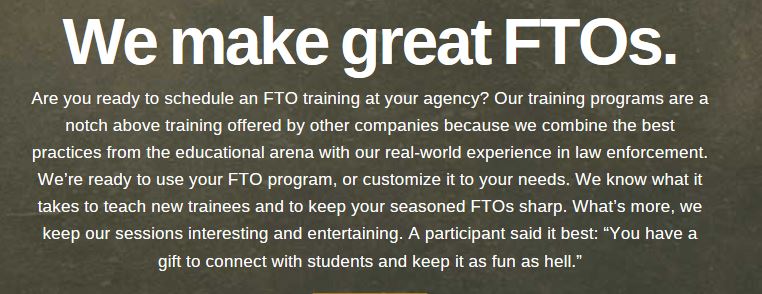Interview & Interrogation
Presented by: REID & Associates, Inc., Chicago, IL
November 5 – 8, 2023
8AM-3PM
Tuition: $630
For more information and to register, click here:
For information contact Julie Rock at 855-479-3959 or jrock@reid.com
COURSE OVERALL LEARNING GOAL:
We have integrated all of our material from our standard three day program and our one day advanced program into a single presentation using our new 202 page outline book to give participants a complete presentation of the Reid Technique in a single seminar. The participant will receive 24 hours of Continuing Professional Education credits.
This new 4-day format includes the material from our 3-day Interview and Interrogation program as well as our 1-day Advanced program. This is the most complete program available regarding the Reid Technique.
SEMINAR TOPICS INCLUDE
- Interview and Interrogation Preparation
- Distinction Between an Interview and Interrogation
- Proper Room Environment
- Factors Affecting the Subject’s Behavior
BEHAVIOR SYMPTOM ANALYSIS
- Evaluating Attitudes
- Evaluating Nonverbal Behavior
- Evaluating Verbal Behavior
- Evaluating Paralinguistic Behavior
BEHAVIOR ANALYSIS INTERVIEW
- The Benefits of Conducting the interview prior to any interrogation
- Analyzing Factual Information Prior to the Interview
- Reid Behavior Provoking Questions
- The Baiting Technique
- Asking Investigative Questions
- Asking Hypothetical Questions
THE INTERROGATION
- Preparation prior to the interrogation
- Assessing the Suspect’s Fears prior to the interrogation
THE REID NINE STEPS OF INTERROGATION
- Step 1: The Positive Confrontation Benefit of the Transition Statement
- Step 2: Theme Development First Person Themes Third Person Themes and Personal Stories Identifying the suspect’s Needs for committing the crime
- Step 3: Handling Denials Addressing Suspect Challenges Addressing the Suspects Request to see evidence Introducing Evidence Tactics to gain trust Tactics to change the suspect’s perception
- Step 4: Overcoming Objections Handling Logical Challenges
- Step 5: Procurement and Retention of the Suspect’s Attention Use of Role Reversal Challenging the Suspect’s Values and Traits Addressing the Suspect’s Fear of Consequences Addressing the Futility of continued denials
- Step 6: Handling Suspect’s Passive Mood Having the suspect verbalize agreement
- Step 7: Presenting the Alternative Question Understanding the Alternative Using Positive and Negative Supporting Statements
- Step 8: Having the Suspect Orally Relate the Details of the Crime Committing the Suspect to the crime Guard Against False Confessions
- Step 9: Elements of Oral and Written Statements
Benefits of Attending
Some of the many benefits realized by individuals who attend a REID® training program include learning a time tested process
- that is in compliance with the guidelines established by the courts
- that respects the rights and dignity of the individual
- that is flexible, adaptable and versatile so as to meet the challenges of an ever changing environment
- that will increase your ability to successfully resolve a wide variety of investigations
- that will enhance your ability to eliminate the truthful and identify the deceptive individual
- that has built in safeguards to protect the integrity of the confession
- that will significantly enhance your interviewing and interrogation skills
Individuals who attend a REID® training course will learn how to
- assess the credibility of the information provided by a victim, witness or subject during the investigative interview
- structure the investigative interview
- solicit the subject’s story, version of events, or explanation of what happened by using open-ended questions
- determine the appropriate follow-up questions
- properly phrase the investigative questions
- use behavior provoking questions during the interview
- use persuasion techniques to learn the truth from the deceptive individual
- to determine the best persuasion approach to use as based on subject insights developed during the interview
- evaluate and implement from a variety of approaches the most effective as determined by the individual and case characteristics
Learn How To:
- Interpret verbal and non-verbal behavior to assess the credibility of a victim, witness or suspect’s statements
- How to use behavior provoking questions in the interview process
- How to use THE REID NINE STEPS OF INTERROGATION® to:
- Develop interrogation strategies
- Develop themes (persuasive statements)
- Develop the alternative question to elicit the first admission
- Handle the more defiant subject and ‘overcome objections’; address the subject’s fears; move past the subject’s denials and motivate the subject to want to tell the truth
Training Manual Includes:
A comprehensive outline filled with detailed information that will serve as an excellent follow up to the training program.
Money Back Guarantee: We are confident in the exceptionally high quality of our training and offer a MONEY BACK GUARANTEE if you are not completely satisfied.
Download THE REID TECHNIQUE® App for iOS devices in the Apple App Store TODAY!
For our current schedule of classes, please visit www.reid.com
Visit our YouTube channel – The Reid Technique Tips
From recent participants:
“Just a little info – I have 37 years law enforcement experience…retired Chief from Burnsville MN. I also served as an Assistant Commissioner at the MN Department of Public Safety for 3.5 years. My feedback would be…”Whether you are a 2 year frontline officer, or seasoned veteran of 20+ years, the skills and techniques that you acquire through the John E. Reid Courses are priceless. I used them through my entire 37 year career!”
Bob Hawkins
Continuing Education Coordinator
Minnesota Board of Peace Officer Standards and Training
At every course we typically hear such comments as:
“I wish I had this course a few months ago….”
“I can’t wait to get back and try these techniques”
“This is so much more in depth than any interview training I have been to”
If you are interested in hosting this four-day training program for your organization or association, please contact Julie Rock / 855-479-3959/ jrock@reid.com.


